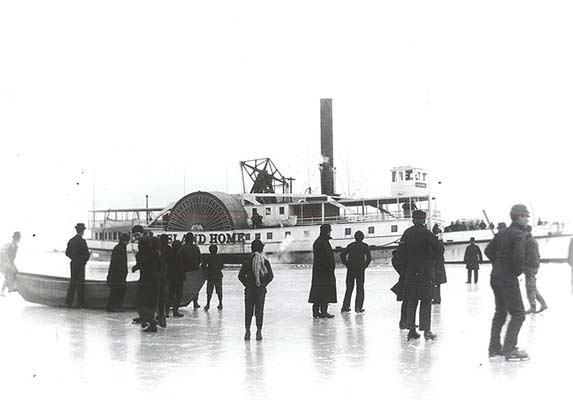Are you a native, a local, a newcomer, a sojourner, an immigrant, an expat, an exile? Does your sense of geographic, political and psychological inclusion or remoteness determine the kind of writer you are, and the value of what you write?
In Australia – and elsewhere – writers navigate a literary landscape marked by a colonising ‘centre’ and colonised ‘periphery’. While AA Phillips coined the pervasive term ‘cultural cringe’ in 1950, the phenomenon itself is older. Prefacing his 1894 Short Stories in Prose and Verse, Henry Lawson wrote bitterly that a writer from the periphery might produce excellent work for years, yet be dismissed as ‘an imitator of some recognised English or American author’ until he or she succeeds in the US or UK. That is when the media exuberantly discover ‘So-and-So, the well-known Australian author whose work has attracted so much attention in London lately …’
Many writers still seem convinced that the most creatively fertile place is somewhere else. Moving abroad, or embarking on residencies, retreats, workshops and extended fact-finding tours, continues to be a rite of passage: it is a way for peripheral writers to advance their work by aligning it with the centre. Once, the place to go was London; today, antipodean writers often aspire to New York, San Francisco or Berlin.
But as art historian Chris McAuliffe warned in Meanjin, ‘For many Australian artists, the defining experience of travel is not transformative pilgrimage but the need to maintain focus in the face of the psychological impact of dislocation.’
That was Robert F Coleman’s experience when he spent three months in Berlin in 2012, hoping to write an album with his band. Instead, he recalls in The New York Times Magazine, they just partied. Like Odysseus’ crew in the land of the Lotus-Eaters, ‘things were too easy … we’d lost all motivation and willpower to ever say no’.
That think piece was the best souvenir of Coleman’s trip – the Times looks great in any writer’s bio.
In a 2012 essay on what American publication means to Australian writers, Sam Twyford-Moore freely acknowledged that pitching his work to the Los Angeles Review of Books had been strategic: ‘I want to be taken seriously at home, and I truly feel that I need to come here to make it happen there.’ And it seems like it’s working for Coleman: the Melbourne Writers Festival recently anointed him one of its ‘30 Under 30’ writers.
Even when writers don’t physically travel, the centre still beckons brightly from their computer screens. As the English-speaking literary world expands and flattens online, the centre’s culture bleeds into the periphery, which invites some embarrassing local iterations of global intellectual trends. As Twyford-Moore blurts, ‘Like do you guys get how hard we are trying to impress you?’
But as writers seek to escape ‘where they’re from’, they are also pressured to epitomise and promote their cities, regions and nationalities – well, idealised versions of them, anyway. Ralph Crane, head of English at the University of Tasmania, recently described the ‘Flanagan effect’, whereby Richard Flanagan’s prize-winning novel The Narrow Road to the Deep North has not only ‘placed the Australian writer in an international spotlight; it also brought Tasmanian literature out of the shadows.’
Of course, the dark flipside of literary nationalism is parochialism. In attempting to combat cultural cringe, parochialism rejects the centre’s influence altogether, instead reconfiguring the periphery as strong and distinctive. But writing from within a parochial literary culture can be stultifying, because it responds only to itself: debates about ‘what it means to be from here’ play out endlessly, with diminishing intellectual nourishment.
In her 2013 essay ‘Literary Cosmopolitanisms in Teju Cole’s Every Day is for the Thief and Open City’, the postcolonial literary critic Katherine Hallemeier argues that the Nigerian-American author’s fiction breaks down the binary of the ‘detached, elite cosmopolitan intellectual’ and ‘abject victim of cosmopolitanism’. Hallemeier suggests that for authors such as Cole, cultural authority and insight stem neither from mastery of the logic that governs the centre, nor from pitying those who cannot ‘escape’ their peripheral circumstances (such as guest workers, refugees and unemployed youth).
Rather, Hallemeier describes Cole’s alternative ‘cosmopolitan literariness’: one ‘distinguished by linguistic and geographical diversity among the producers of, and audiences for, literary culture’. Cole challenges the primacy of a globally mobile literary elite by introducing local characters who are much more curious, creative and better at parsing cultural differences than his protagonists.
Rather than chafing against the parochialism of place, or travelling abroad to elude it, we can engage with the world using the tools to hand, like the enterprising Nigerian email scammers in Cole’s novella Every Day Is for the Thief. We can write from where we are.
Not where we are from, or where we wish we were. We can assert the cultural specificity of our ideas without shame, and without feeling compelled to perform and promote geographic identities. We can captivate global audiences on our terms, not theirs.



